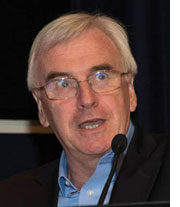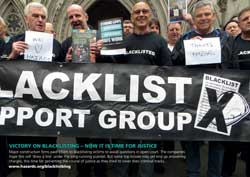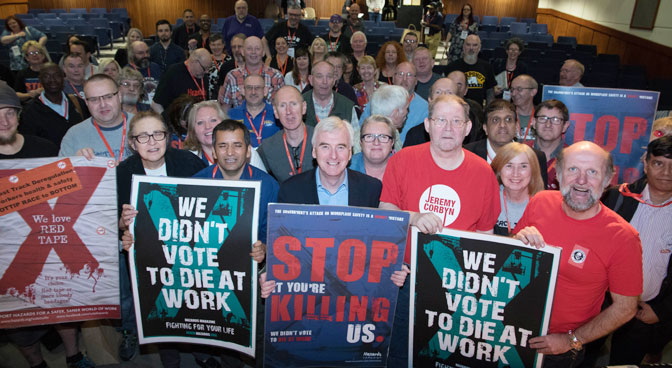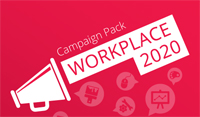

 The shadow chancellor has form on health and safety. A long-time supporter of the Blacklist Support Group – John McDonnell wrote the foreword to the book Blacklisted - he knows there is a lot of damage to be undone.
The shadow chancellor has form on health and safety. A long-time supporter of the Blacklist Support Group – John McDonnell wrote the foreword to the book Blacklisted - he knows there is a lot of damage to be undone.
Addressing union safety reps, he said: “I want to say thank you for keeping health and safety on the agenda in the difficult climate against the austerity cuts, the deregulation cuts onslaught of the Red Tape Challenge, to expose the number of deaths, injuries and ill-health caused by the overall poor health and safety climate.”

FATAL EVIDENCE The number of people killed at work has increased again, official statistics show. Provisional figures released by the Health and Safety Executive (HSE) in July 2016 indicate that 144 people were killed in 2015/16, up from 142 in 2014/15 and 136 in 2013/14. more
According to HSE’s 2016-17 business plan, HSE will receive £140.9m from the government in 2016/17, down from £231m in 2009/10. The government’s contribution to HSE’s funding is set to fall to £128.4 million by 2018/19. Meanwhile, evidence is emerging that the long-term downward trend in workplace injuries and ill-health has reversed.
Speaking at July’s National Hazards Conference, McDonnell (above) said Labour in opposition “will expose the lack of performance of the HSE due these cuts and analyse the lack of investment and deregulation. I will work with you to use every possible parliamentary mechanism to expose all of this, and every public measure available too.””
He said he was “scandalised at the commercialisation of the HSE, the fact that the HSE is tasked with selling its products not just in this country but around the world. You know as well as I do that as soon as the profit motive enters an organisation, principles go out the window. I think there is a conflict of interest about making a profit and doing the job of enforcing properly and independently” (Hazards 134).
Finger of blame
The Conservative’s regulation-lite, enforcement-lite policies had seen a return to the bad old days, McDonnell indicated. “My dad used to work on the docks and I remember him coming home one day minus a finger. This was a common experience, and the family joked he was not quick enough. It was for my generation and certainly my father’s generation almost the norm that at some time in your working life you would expect to be injured.

CLEAR MESSAGE Labour would tackle Britain’s safety malaise and give unions the rights they need to secure good, safe work, John McDonnell said.
Workplace 2020 Consultation.
“What has happened in the current climate is that we have come to accept that occupational illness and exposure to asbestos, various chemicals and other hazards is the norm.”
But it needn’t be that way. “We are going to end that climate and the climate of impunity where employers and managers can walk away without bearing any responsibility for the injury of the workers they employ,” he said. “We will work with you to oppose what the Tories are doing to health and safety, to raise the whole level of debate on health and safety,” the shadow chancellor said.
“I make you the offer that if you want to put together a paper on the health and safety issues facing workers and the demands you have set out, we’ll take that to the Shadow Cabinet for debate and for identifying priorities for the future.”
Open door
Unions and campaigners would have a say, under an ‘open door’ policy, McDonnell pledged. “We will ensure the trade union voice in all discussions in terms of future government policy and opposing the current government and in developing the regulatory regime post Brexit.”
The Labour leadership has “already outlined our clear red lines” in the Brexit negotiations, McDonnell said. “One of these is that there must be no watering down of the regulatory environment. This is a basic red line.” He added: “We won’t allow Brexit to undermine workers’ rights, or the regulatory environment in this new Europe.”
Industry-skewed trade deals like TTIP with the US (Hazards 129) and CETA with Canada, which would undermine public, consumer and workplace health and safety protections, would be dropped. “Working with other parties we will develop criteria and an agenda for proper trade agreements,” he said. “This agenda must include an appropriate regulatory regime covering the way workers are treated, including actioning health and safety as well.”
Safety makes sense
Health and safety isn’t only good for workers, it is good for the economy, he stressed.
“The whole issue of health and safety as an economic issue needs to be highlighted. The undermining of the regulatory regime has an impact on the economy overall, a cost. And the performance of the economy overall if it is based on exploitation of workers, in the long term this will undermine not only the industrial reputation of the British economy but the overall performance of the economy too.”

LABOUR OF LOVE The shadow chancellor has form on health and safety. A long-time supporter of the Blacklist Support Group – John McDonnell wrote the foreword to the book Blacklisted – he knows there is a lot of damage to be undone (Hazards 134).
He said “the whole basis of health and safety protection in this country is bound up with the development of the trade unions and health and safety advances are bound up with the trade union movement and the organisation, representation and pressure they can bring to bear, on employers and government.
“Health and safety advances go hand in hand with trade union advances. We cannot establish an effective health and safety regime in this country unless we restore trade union rights as well.”
Labour would implement “clear policies to restore trade union rights, to address anti-trade unions laws and, yes, to scrap the recently enacted Trade Union Act.” He said theLabour leadership had endorsed the Manifesto for labour law published in June 2016 by the Institute of Employment Rights “as a blueprint for comprehensive review and restoration of workers’ rights.”
McDonnell said: “We would establish a Ministry of Labour. We would set up sectoral employment bodies. Our proposals for rights at work are not only universal but enforceable. And in addition we would secure freedom of association and the right to strike for the first time.”
A real voice
McDonnell said Theresa May’s recipe for worker engagement – “a few trade unionists on a few boards, possibly” – did not address the malaise in British corporate governance.
“We will give trade unionists as of right the ability to influence the agenda of the companies they work for. This is industrial democracy on a scale not previously seen in this country. That means workers on boards do not get incorporated but set the agenda. One key element of that agenda will be health and safety to make sure people no longer go to work and face risk of serious injury or losing their lives.
“This means employees’ conditions become a priority, with health and safety clearly prioritised in this agenda.”
He added “we will legislate so that no-one else will ever be blacklisted in this country again.” Compromise agreements and gagging clauses would also go, he said, and Labour would take seriously the issues of mental health and workplace stress. "We will support your campaigns, we will support safety reps and work to end their victimisation and to support individuals who are being victimised.”
It is a new way of doing business, McDonnell said. “We are now a mass movement, we are calling it people powered politics. Working together in the coming period, together we’ll ensure we create a safe environment for workers.”
Latest statistics confirm work fatalities upturn
Official figures have revealed the number of people killed at work has increased again. Provisional workplace fatality figures released by the Health and Safety Executive (HSE) in July 2016 indicate that 144 people were killed while at work in 2015/2016 – up from 142 in 2014/2015, and 136 in 2013/14.
The upturn bucked what HSE said was a “long term trend” that “has seen the rate of fatalities more than halve over the last 20 years,” but with the actual HSE statistics report also conceding “in recent years this shows signs of levelling off.” New HSE chair Martin Temple said: “One death at work or life needlessly shortened, is one too many and behind every statistic lies a real story of loss and heartbreak and families left to grieve.”
Construction deaths increased in 2015/16, up to 43 from 35 in 2014/15 and have shown no overall reduction in five years.
“This is the second year running that the numbers have increased and is a worrying trend given the decline in inspection activity by the HSE and local authorities,” commented TUC head of safety Hugh Robertson.
Labour shadow chancellor John McDonnell commented: “Workers deserve the protection of strong employment rights, trade union rights and a safety watchdog that is up to the job. Six years of Conservative-led government have allowed rogue bosses to exploit an increasingly insecure and abused workforce. Labour will protect people at work, rather than create a world where the likes of Sir Philip Green and Mike Ashley can get away with whatever they want.”
“Working people earn this country’s wealth and run our public services; these are essential tasks for which no-one should pay with their life.”
Not included in HSE headline fatality figure is the 103 members of the public fatally injured in accidents connected to work in 2015/16, of which 36 (35 per cent) related to incidents occurring on railways. Nor do the HSE fatality figures include the tens of thousands who succumb each year to work-related diseases. Work-related transport deaths and occupational suicides are also absent from HSE’s figures.
Statistics on fatal injuries in the workplace in Great Britain 2016, HSE, July 2016.
HARD LABOUR
Shadow chancellor John McDonnell tells Hazards your protection is a 'red line' issue and that means delivering a strong safety regime underpinned by restored trade union rights.
| Contents | |
| • | Introduction |
| • | Finger of blame |
| • | Open door |
| • | Safety makes sense |
| • | A real voice |
| Related story | |
| • | Latest statistics confirm work fatalities upturn |
Hazards website
• Vote to die
• Deadly business
2020 VISION Protecting health and safety and restoring trade union rights will be key elements of Labour’s policy plans, says John McDonnell.
Workplace 2020 Consultation.

